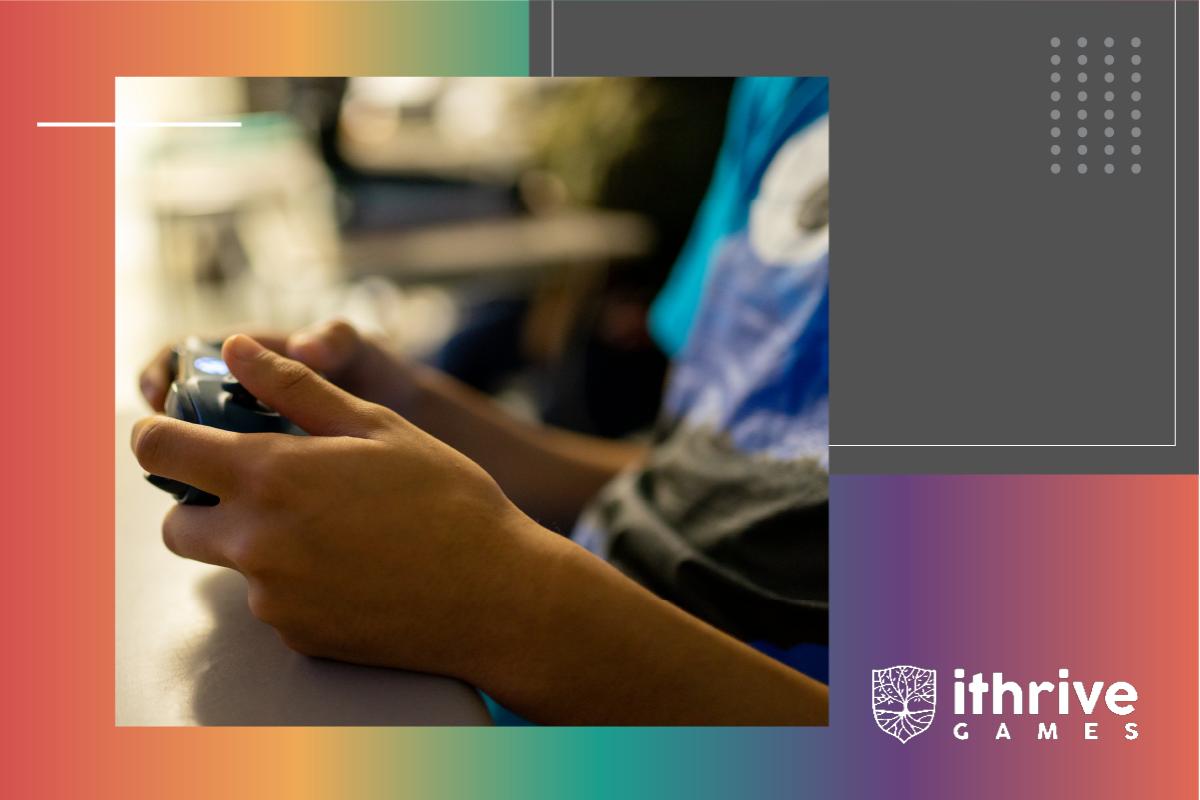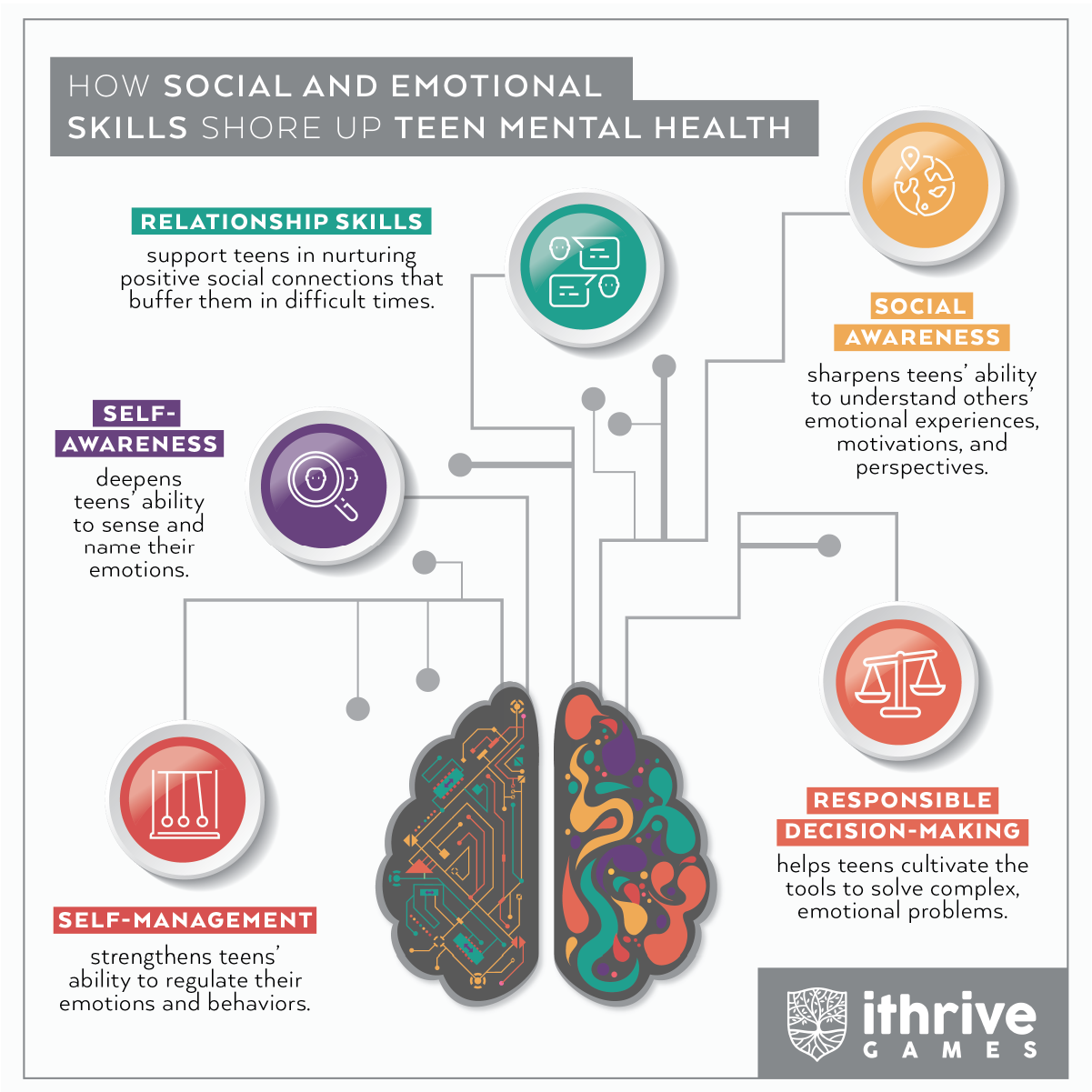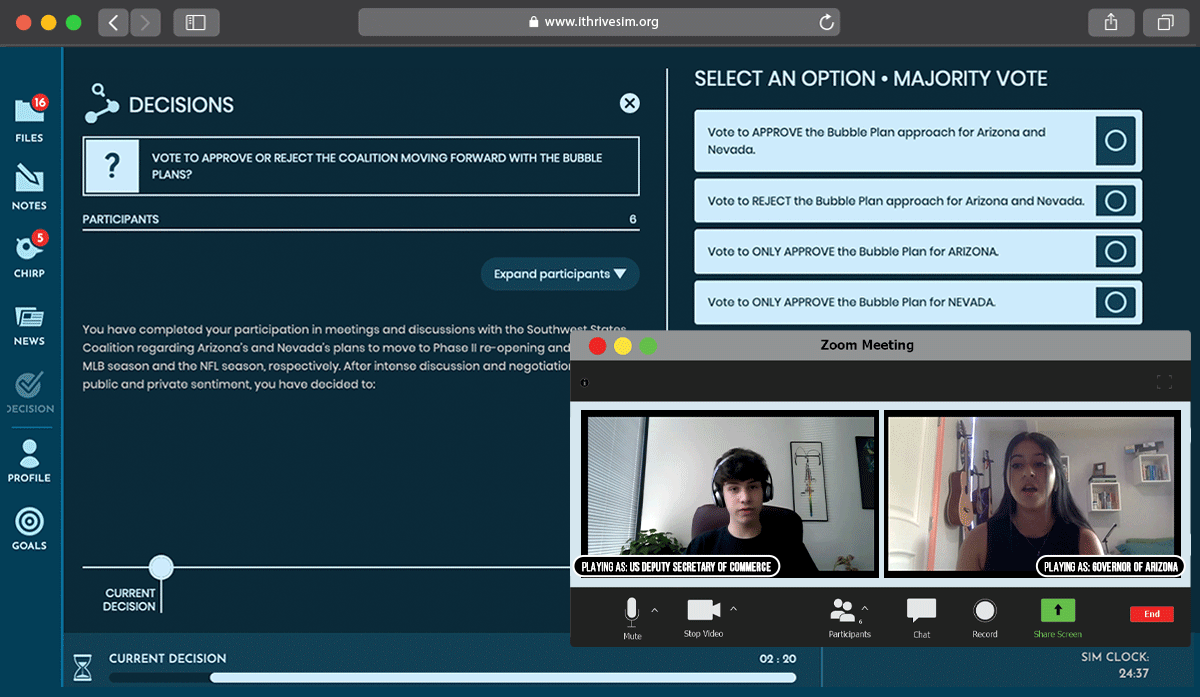
Make It A Gameful School Year: Meeting Teens Where They Are With Play
Games are unsurpassed in their ability to engage teens. Enlist them this school year to support joy, connection, and transformative social and emotional learning.
"I'm always going to enjoy a lesson where you can learn and have fun... It helps keep the students focused and even helps motivate them. I know I'm motivated to find out what happens next," shared a high school senior who, along with peers in his humanities class, was one of the first to gather around an Xbox One, play What Remains of Edith Finch, and meaningfully learn from it using our iThrive Curriculum unit, Museum of Me.
Games like What Remains of Edith Finch merge mechanics, worldbuilding, and challenges to deliver emotional and immersive experiences to all who play them. For the 85% of teens in the United States who play them (International Journal of Mental Health and Addiction), they are a solid and steady source of joy, connection, and entertainment.
At iThrive Games, we see the curiosity, embrace, and eagerness activated in teens by a never-before-seen start screen as a launchpad for social and emotional learning (SEL)—a transformative skill-building practice proven to protect and promote their mental health. Our team folds in what we know about the transcending and emotion-evoking power of games into a unique multidisciplinary, user-centered, and participatory approach that brings teens, researchers, game developers, and our adolescent development experts to the table to envision, create, and test tools that support teen thriving.
The games and game-based learning experiences we've co-designed alongside libraries, museums, schools, and youth-serving organizations we work with fully recruit the feelings conjured through play to create a wellness-supporting experience that centers teens' social and emotional needs. We use play to bring SEL to young people in a developmentally responsive way with games that invite them to uncover and nourish their strengths, craft and answer their own questions—activities that expand their understanding of themselves, others, and the world around them.
Beyond enthusiasts, we are ambassadors of play. Our team's first-hand witnessing of what games do (and can do) over the last five years has affirmed our belief in their unique capacity to support young people's thriving. We fully encourage educators, program coordinators, and all working with teens this school year to bring them into the spaces they share with them to see the power of play first-hand, too. Keep reading for resources, recommendations, and insights that support the integration of games in teen-serving settings and their use in teen-centered ways.
WHAT PLAY DOES (AND CAN DO) FOR TEENS
Play is beneficial for all of us, but for teens especially. Here are five things play does for young people, and can support, enable, and elevate when brought into the spaces where young people gather and learn:
Play activates deep learning and personal growth. Games present opportunities for teens to engage interactively and think expansively. Environmental storytelling coupled with mechanics that govern and guide the player's actions and the game's response to them give way to an experiential context where teens build knowledge while exercising personal agency—the conditions for deep, meaningful learning. "Games offer teens the ability to fully inhabit the world of a video game, to embody characters with agency along with the chance to impact the world and characters around them," shares Susan E. Rivers, PhD, iThrive's Executive Director & Chief Scientist. "They offer the agency and low-risk experimentation that teens rarely get but sorely need to discover who they want to be."
Play supports social and emotional development. Games make us feel. They delight us, challenge us, calm us, frustrate us, and excite us. They can prompt problem-solving, conflict resolution, and empathy, provoking opportunities that support teens' social and emotional learning. Social and emotional learning is defined by the Collaborative for Academic, Social, and Emotional Learning (CASEL) as "the process through which all young people and adults acquire and apply the knowledge, skills, and attitudes to develop healthy identities, manage emotions and achieve personal and collective goals, feel and show empathy for others, establish and maintain supportive relationships, and make responsible and caring decisions."

"How Social and Emotional Skills Shore Up Teen Mental Health." iThrive Games. https://tinyurl.com/what-sel-does-for-teens
Games provide a social space ripe with opportunities for young people to lean into these tasks, as well as developmental ones like identity exploration, establishing and exercising independence, and finding their place in community.
Play soothes. Games transport and immerse teens in new worlds, and with the space to interact as a new character and confront conquerable challenges comes the opportunity for stress reduction, self-gratification, and flow states. In countless co-design sessions with teens, we've heard that games are an outlet for relaxing and unwinding, providing a constructive space for coping, breaking for a bit, and pressing pause in challenging moments.
Play fosters connection. When teens play with peers, be it competition or collaboration, they socialize and connect, tasks paramount to their mental health. In the connective spaces games offer, teens can share their triumph and joy with others. They can work together toward a shared in-game goal and, sometimes, tackle the fallout of a shared loss in powerful bond-building experiences.
INTEGRATING PLAY WHEREVER TEENS LEARN AND GATHER
The work of adolescence has always been social and emotional, and young people need tools and strategies to help them navigate it. What games do for teens make them a useful means of support, and when enlisted by adults in their world as a medium of engagement, they are further solidified as valuable parts of young peoples' toolkits.
For all looking to leverage the power of play this school year while in community with teens, here are three ways to do so:
1. Pull in a game-based learning curriculum, or create your own.
Game-based learning supports educators in using the power of games to define and support their students' learning outcomes. When lesson plans leverage video games—an entry point familiar to most teens—they pave the way for a culturally responsive learning experience supportive of innovative thinking, deep learning, and in the case of our standards-aligned iThrive Curriculum units, A Moment in Time, Museum of Me, and Sam's Journey) that center themes relevant to teens like navigating identity exploration, relationships, and social media, their social and emotional development too. For educators who value accessibility also, game-based learning aligns with Universal Design for Learning principles. As a stark differentiation from traditional learning approaches, games help educators reach and engage teens with a practice that acknowledges that teens are vast and wonderful, engaging with concepts from different access points. Here's how to choose a video game for a high school humanities or English class and a case example of how iThrive Games does so.
2. Employ role-playing simulations to support a 'learn by doing' approach.
Role-playing simulations engage teens in a high-energy experience with hands-on learning as they are challenged to strategize and act. Multiplayer ones, particularly, invite them to interact and investigate with each other and pursue shared goals. The embodied learning accompanying the role-playing propels their curiosity and motivation to explore possibilities transferable to real-life contexts.

High school students playing iThrive Sim: Lives in Balance. See the gameplay in action here.
The simulations offered via iThrive Sim, our award-winning simulation platform that hosts dynamic role-playing games that scaffold educational content with social and emotional skill-building activities, encourage teens to learn by doing. Each one in our core civics library (Lives in Balance, Leading Through Crisis, and Follow the Facts) invites teens to play alongside their peers, prompts them to draw on their own experiences and their social and emotional skills while making decisions, demonstrate critical thinking, acquire and interpret information, and navigate challenges collaboratively. Dive into the social and emotional skill-building and civic learning that happens in each iThrive Sim game experience here.
3. Unleash teen creativity by inviting them to be game designers.
Why? As teens progress through adolescence and develop their capacity to reason thoughtfully and think critically, this three-letter question becomes all the more important and prominent in their lives. The cognitive growth teens undergo propels them to investigate the 'whys' that shape how they live and see their world. They move from thinking concretely and heavily relying on physical observations to thinking abstractly about possibilities. In this last major phase of development, where teens are primed to learn and adapt, curiosity becomes a growth point, and game design uniquely nurtures it in them. Our Game Design Studio Toolkit, developed in collaboration with EdTogether, sandbox games like Minecraft, and game-making tools like Roblox, provide teens with a springboard for unpacking complex challenges, investigating questions, and stepping fully into their creativity.
Games are unsurpassed in their ability to engage teens in physical and virtual worlds deeply. They offer teens a safe space to wander and wonder, exercise their innate curiosity, and build new understandings of themselves and each other. When used as a medium for engaging with young people in the spaces where they gather, they become more than entertainment—they become levers for social and emotional support.
How are you using play this school year? Let us know on Twitter by tweeting us @iThriveGames using the hashtag #GamesforThriving, and stay updated with our game-based resources and game design work, done with and for teens, by subscribing to our monthly newsletter.


